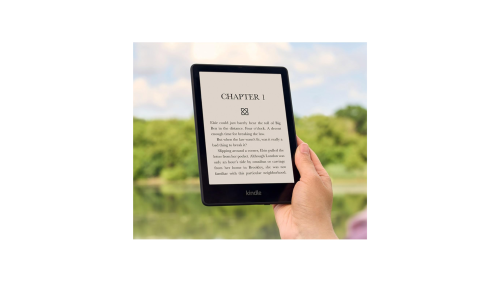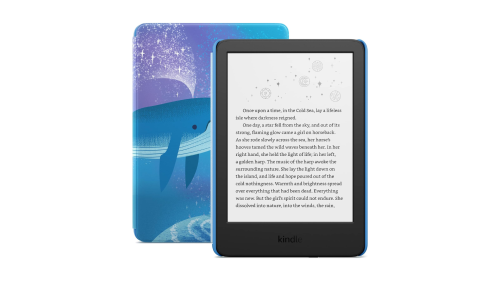The following is excerpted from “A Resilient Life: A Cop’s Journey in Pursuit of Purpose” in which author David Berez reveals the hidden mental health challenges he and so many other officers face and the resiliency techniques officers can use to raise their baseline of mental and emotional strength. Order your copy here.
Gratitude
Gratitude is the foundation of my journey. Learning to give and receive it helps me recognize my purpose. According to the Oxford English Dictionary, gratitude is defined as “the quality of being thankful, a readiness to show appreciation for, and to return kindness.” Showing gratitude for the good that happens to you, helps you to recognize the good in your life. Accepting gratitude that others show you allows you to feel the good that you are doing for others. That give-and-take relationship is what fuels your purpose. Here are some easy ideas to express gratitude:
Start a gratitude journal: It is as simple as buying a $0.99 notebook and writing down what you are grateful for each morning. Do the same thing at night before you go to sleep, noting even one thing for each entry reminds you of the positives in your life. This process motivates you to begin and end your day with a positive thought. After 30 days, this consistent practice rewires your neural pathways, and you automatically begin to experience more joy in your life. While joy and anger cannot exist in the same space, you find yourself smiling more and yelling less. You will experience more happiness and less angst.
I will compare gratitude to a purple truck. I am sure you just giggled to yourself, asking, “What are you talking about? I have never seen a purple truck.” Well, now that we are talking about purple trucks, I guarantee you will see one on the roadway and then notice them more and more as time moves forward. The same goes for gratitude and purpose. Until you begin to think about it, you may not ever see it. However, when it is top of mind, you will see it everywhere.
Talk about gratitude: Discuss gratitude at the dinner table with your family. Ask each other what you are most grateful for each day. Use sticky notes to capture your thoughts and then put the notes on the wall in the kitchen. This will serve as a reminder every morning and every night of all that is good in your life. Try this exercise at work, too. It will change the office culture. It will encourage folks to be vulnerable yet anonymous, and others will become more compassionate as they see life from other people’s perspective.
Create gratitude bags: This is a simple gesture that costs little but makes a big impact on someone’s day. My family hands out gratitude bags to ensure people feel noticed and appreciated. We fill small plastic bags with a few pieces of chocolate and/or candy and attach a handwritten note to it. We hand out these bags out to flight crews, gate staff, and TSA when we travel. We give them to hotel clerks and cleaning crews. We share them with lift attendants at the ski resort, gas station attendants, cab drivers, and service personnel, including first responders.
My favorite interaction was at Butternut Ski Mountain where, as a family, we spend most of our weekends in the winter. A young man was assigned to the men’s bathroom in the lodge for eight hours. It was his job to keep the bathroom clean for guests. He continually had a mop in his hand or was washing the mirror, replacing paper products, or wiping the toilets and urinals after each use. While he was ever present and certainly working hard, he was hardly noticed by anyone using the facilities. One day, I gave him a gratitude bag, and his initial reaction was to throw it in the garbage as if that was my intent for him as a patron. I quickly stopped him.
“That is for you,” I said. He seemed a bit confused, and so I explained. “I wanted to thank you for all you do for those who visit the resort.”
The young man was shocked and began to cry.
“No one has ever thanked me for doing my job,” he said. “No one has ever acknowledged me at all.”
“I know how that feels,” I replied. “I see you and I appreciate you.”
The joy on his face and in his heart was something I will never forget. A random act of kindness costs little to nothing, but it can change the world for someone else.
Random acts of kindness should not be so random. Be intentional and do good for others. Hold a door open. Pick up something that someone dropped. Let someone go before you in line. If the person in front of you seems flustered, genuinely tell them to take their time as you are not in a rush. Buy the coffee for the person behind you. Compliment someone. Say thank you. Kindness is a force multiplier. On the most basic level, doing something good for someone else without the expectation of getting anything in return, will not only make people feel good, but it will also make you feel good, too. Moreover, being kind to someone will likely inspire them to do the same for someone else, and before you know it, that kindness will come back to you, and you will be inspired to start the process all over again. Kindness brings joy to others, and as I mentioned earlier, joy and sadness cannot live in the same space. So, even in the darkest of moments, you can be the light.
For a while, finding my purpose was my purpose. Clearly, that is not sustainable, and I would need to support the journey with knowing the destination. However, one cannot underestimate the lessons learned along the way. The journey of finding my purpose helped me understand my “why.” It was always there, but I never saw it.
From the stories of my ancestors to my childhood experiences, to my education and first responder career, it was always there. My “why” was always hungry, but it was easily fed by chasing after my dreams. For 20 years as a cop, it was fed the same diet, the same food, with the same routines and it was satiated. My “why” was disguised as my “who” and that clouded my purpose, especially during my retirement transition.
Once I recognized that my “why” was not tied to being a police officer, I was able to explore other acts that fulfilled me. I am driven by helping and supporting others to be the best versions of themselves. By doing so, I continue to give myself the chance to be the best version of myself. My fate is not to generate dollar bills through a career of building or selling widgets. I am not that creative to invent the next big thing or idea. I am not driven by tangibles, social status, or titles that some see as success. I am inspired by being part of someone else’s significance, and to know that because of some value I was able to offer, that person is the best version of themselves and can do their part to make the world a better place for everyone else. That is what brings me joy and the feeling of having lived a purposeful life.
Furthermore, living a resilient life is not merely the art of bouncing back. It is the ability to bounce forward. It is about embracing the adversities in your life, being better today than you were yesterday, and setting goals and objectives to be even better tomorrow. Transgenerational trauma, adverse childhood experiences, lived experiences at home and at work are all waypoints along your journey that eventually lead to a fork in the road. They are the heavy bags you carry that represent the “who.” That fork in the road is where you decide what to do with those bags and everything in them.
About the author
David Berez is a retired police officer with a total of 34 years in emergency services. He is currently earning his Masters in Applied Positive Psychology from the University of Pennsylvania. He is also a Master Resiliency Trainer, mental health advocate for law enforcement, and subject matter expert in impairment and infrastructure and event security. Mr. Berez advises several organizations on public safety matters, most notably Citizens Behind the Badge. Contact Mr. Berez through his website www.six4consultants.com.







